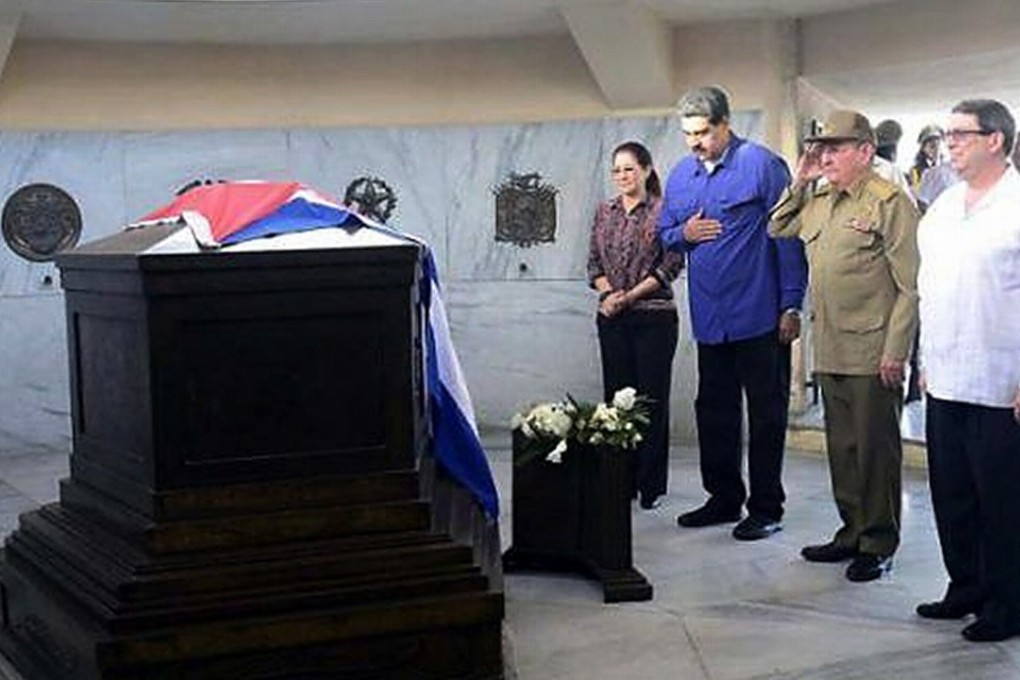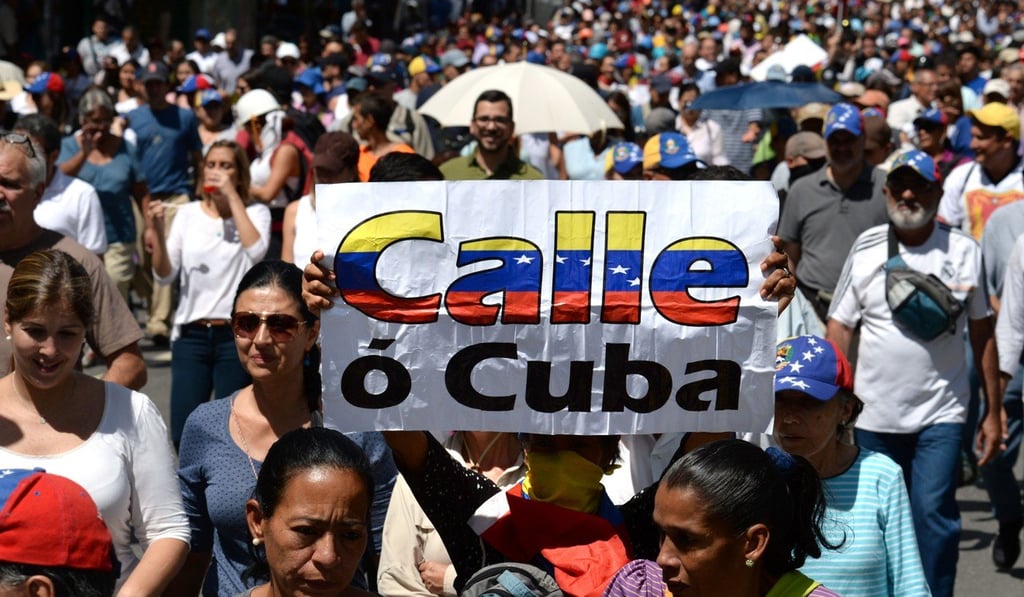After Maduro’s secret trip to Cuba, Venezuelan opposition leaders want to know: ‘Why did he go?’

The unannounced visit to Cuba earlier this week by Venezuelan President Nicolas Maduro, apparently to pay homage to the late Fidel Castro, has rekindled criticisms about the Cuban government’s strong influence on Venezuela’s crisis.
“Mr Maduro traveled secretly last night to Cuba. Why did he go? He’s been to Havana more than Maracaibo or San Cristobal,” Venezuelan opposition leader and Miranda state Governor Henrique Capriles wrote in Spanish on a Tweet posted Monday.
“Why did Mr Maduro go?” Capriles added in a video posted Wednesday on Periscope. “To hand over more of our oil? To commit our armed forces even more, asking for reinforcements from the Cuban military so they can continue … to command the Venezuelan military?”

“The Castro government tests and applies all its repressive technology in Venezuela,” said a declaration signed by 42 Cuban government opponents. “Havana designs the strategy for installing a totalitarian regime, and sends the agents necessary to carry out those objectives. The Chavista regime, plagued by corruption and drug trafficking, has been the perfect ally.”
The declaration signers — including prominent Cuban dissidents Berta Soler, Guillermo Farinas, Jose Daniel Ferrer and Antonio Rodiles — added that Cuban ruler Raul Castro and his son Alejandro, as well as Maduro and his No 2, Diosdado Cabello, “should be held equally responsible for the disastrous situation in the sister nation.”
For the Venezuelan opposition, the issue of alleged Cuban interference is of such importance, that in a declaration criticizing President Donald Trump’s recent mention of a possible US military intervention in their country, the Caracas-based Mesa de la Unidad (Democratic Unity Coalition) alleged that “military and political interference by Cuba has not only affected our sovereignty and independence but is one of the main causes for the government’s violence and repression.”